ANTLERETTE
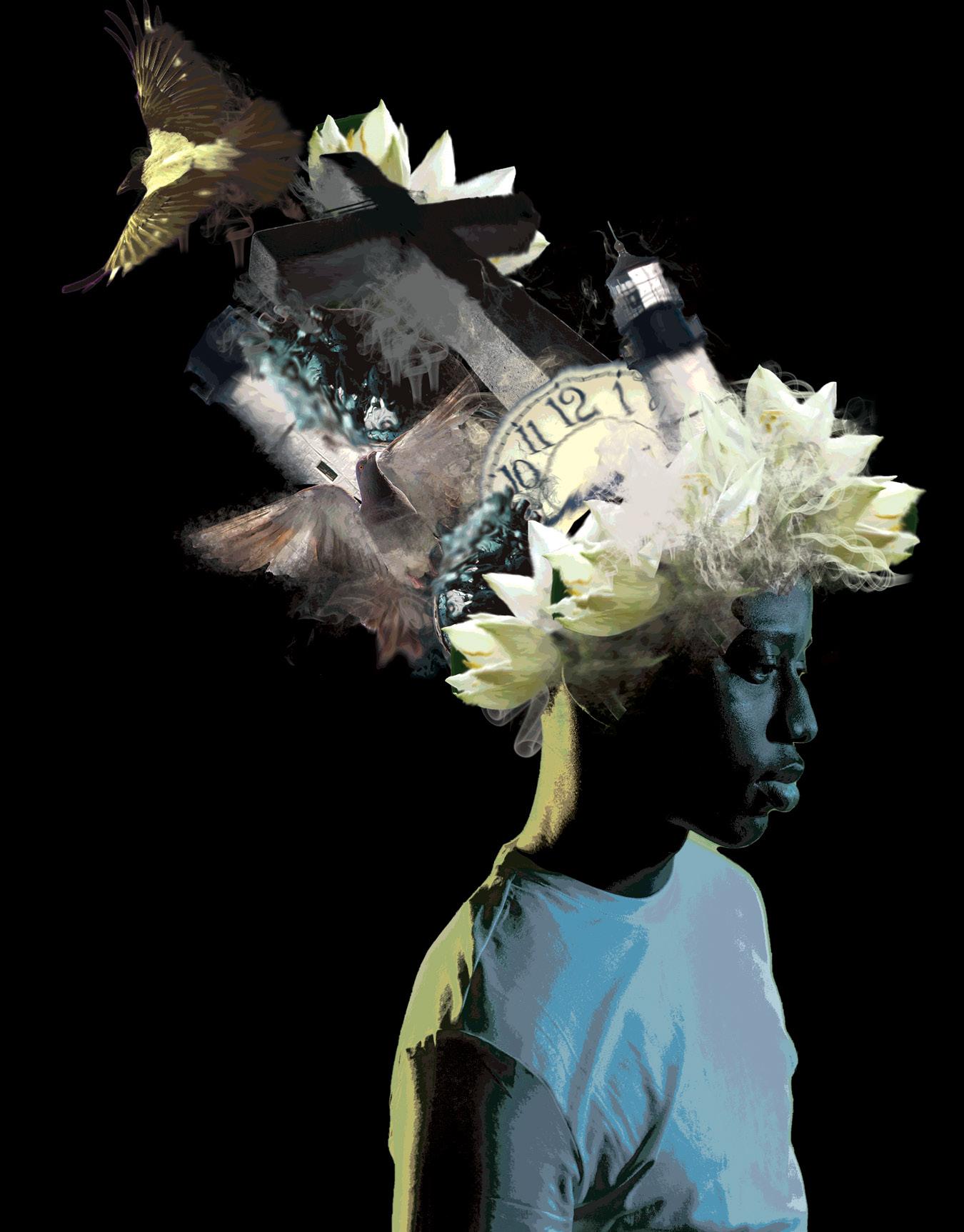
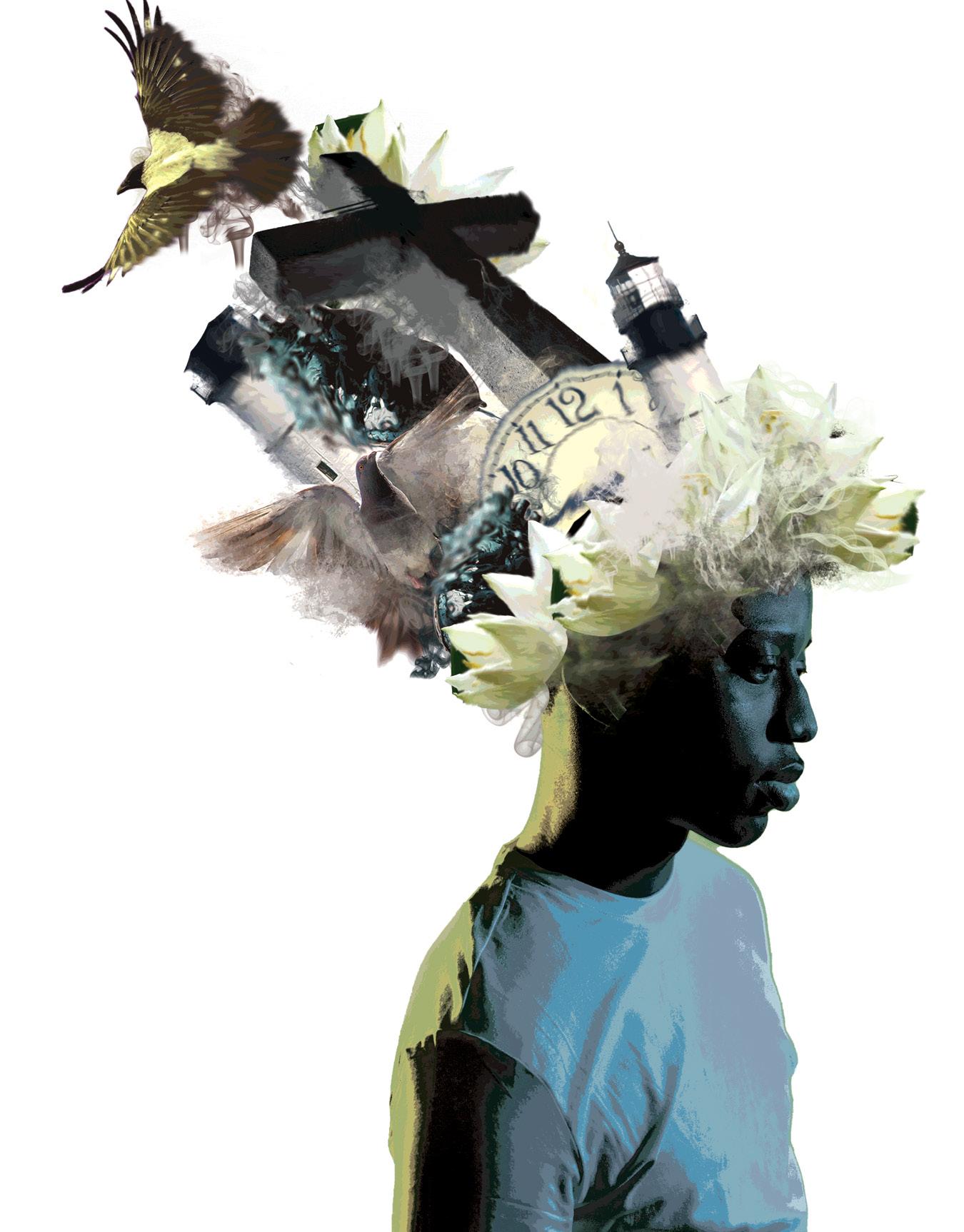
VOLUME 97 // ISSUE 1 THE
WHAT IS GRIEF, IF NOT LOVE PERSERVERING ?










HOW DOES THE BRAIN COPE WITH LOSS?
I’M NO MASOCHIST, MOTHER
LOSING MY PAST TO ACHEIVE MY FUTURE
THE LOSS OF TIME


LOSS AND ITS PRESENCE IN CREATIVE OUTPUT: THE STORY OF WISH YOU WERE HERE
AMERICA IS LOSING ITS DEMOCRACY
CYNICISM: SEEING THE WORLD THROUGH CRACKED GASSES
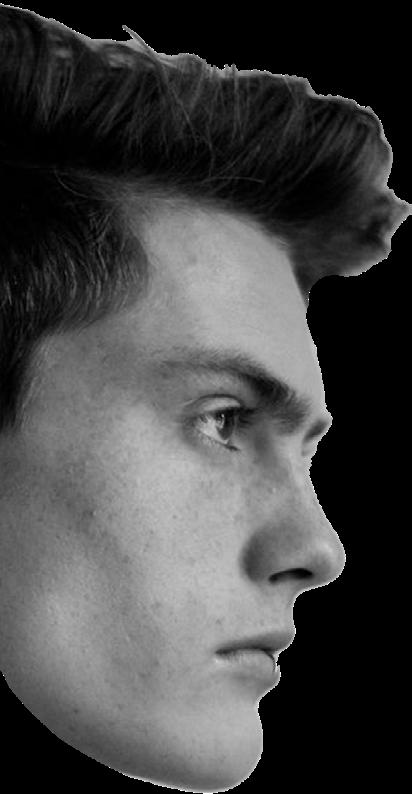
TDA GALLERY

EDITORIAL IMAGE // KAYLA ROSE-KILGORE, HIBBA ZAFAR & JOCELYN JONES 6 AVANI KUMAR // STAFF 8 RYAN O’SULLIVAN // CONTENT EDITOR 10 SPRUCE RANTS-BIGAM // STAFF BENJAMIN CARRILLO // EDITOR-IN-CHIEF 12 14 DAVID CANO // STAFF 16 IZAIAH RETANA // STAFF 18 ADRIAN BAYARDO
20
TABLE OF CONTENTS 22 AZRIEL EZRA HU // STAFF
4
// STAFF
AILIDH RUTHVEN // STAFF
MORE YEARS // SILENCE
THE ANTLERETTE // FALL 2022
BENJAMIN CARRILLO // EDITOR -IN-CHIEF

LETTER EDITOR FROM THE

Over the past year, the defining term in my life, and the lives of millions of others has been loss. I’ve suffered the loss of my childhood, great friends, and myself to some degree. The way that I, and many others, feel can be isolating and upsetting. But in this edition of The Antlerette, I anticipate that this will instead incite feelings of validation and warmth within our reader as we all wear our hearts on our sleeves, and unpack what loss means to us personally.





Read about the loss of a close family member, and the psychological effects behind that. Read a creative writing piece about processing the loss of a friend. Read about my personal self journey with loss, or read about the loss of democracy in our current nation. This and more will be featured in this year’s edition of our fall magazine.





As the last fall magazine that I will be a part of, as my four year tenure as a staff member comes to an end, and third year as an editor on the staff, I can confidently say that this is by far my favorite one we’ve produced. Every story in it bleeds the emotions they were meant to convey. I guarantee that you will not be disappointed with this year’s edition of The Antlerette!
 EDITORIAL ADVISOR // MICHELLE HAMILTON DESIGN ADVISOR // MARGARET SOULIERE
EDITOR-IN-CHIEF // BENJAMIN CARRILLO CONTENT EDITOR // RYAN O’SULLIVAN
EDITORIAL ADVISOR // MICHELLE HAMILTON DESIGN ADVISOR // MARGARET SOULIERE
EDITOR-IN-CHIEF // BENJAMIN CARRILLO CONTENT EDITOR // RYAN O’SULLIVAN
LOSS < 2
COVER PHOTO ILLUSTRATION // ABIGAIL KREGER GRAPHIC DESIGNERS // SARAH MARIE ABAD, CHRIS DODSON, BROOKLYN DUONG, JOCELYN JONES, ABIGAIL KREGER, TRINA PHAM, SOPHIA ROSAS-SAENZ, ANNELI SPIELER, PUROK TAHZEEB, HIBBA ZAFAR
moreyears//silence, clear
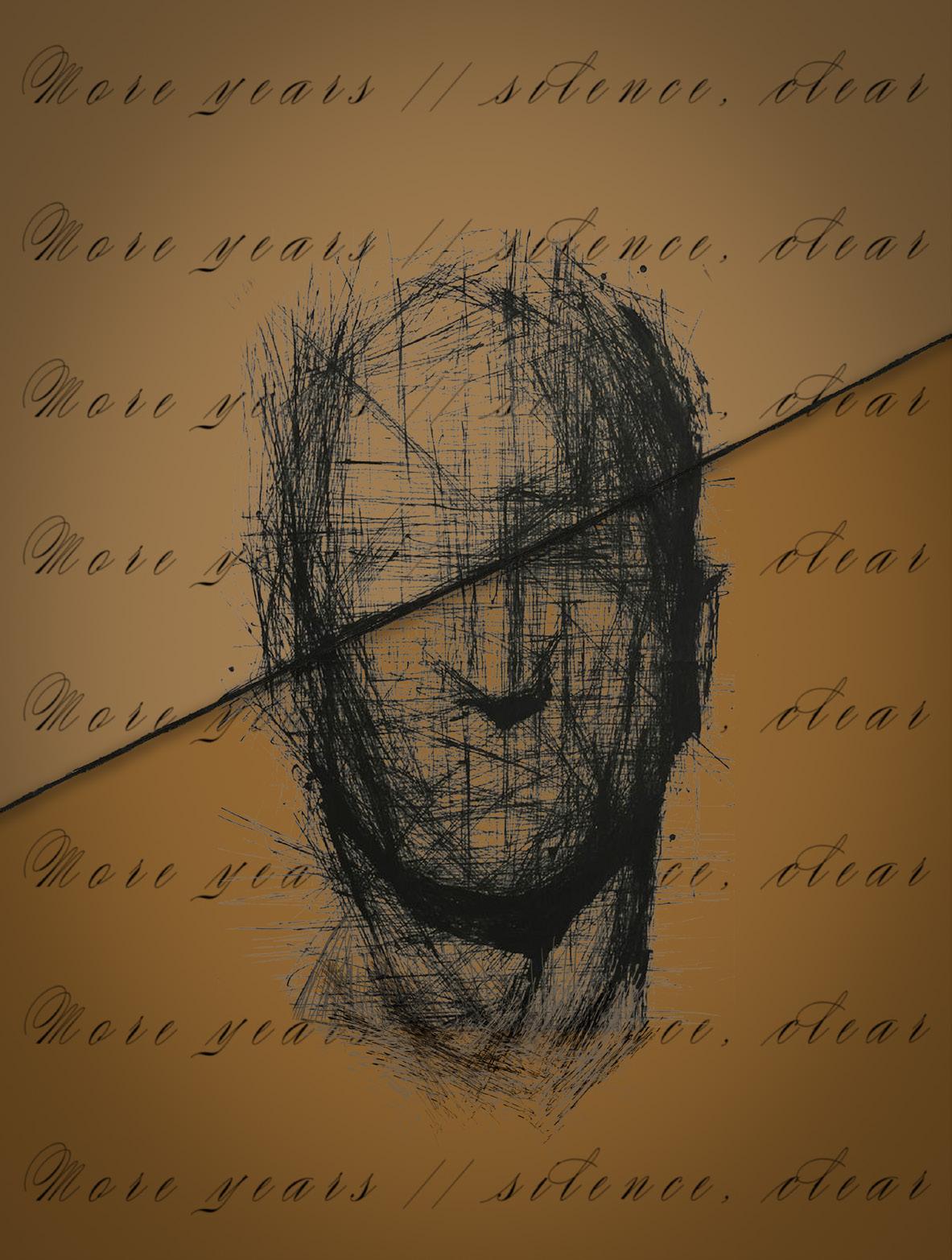
EDITORIALIMAGE // SARAHABAD&HIBBAZAFAR
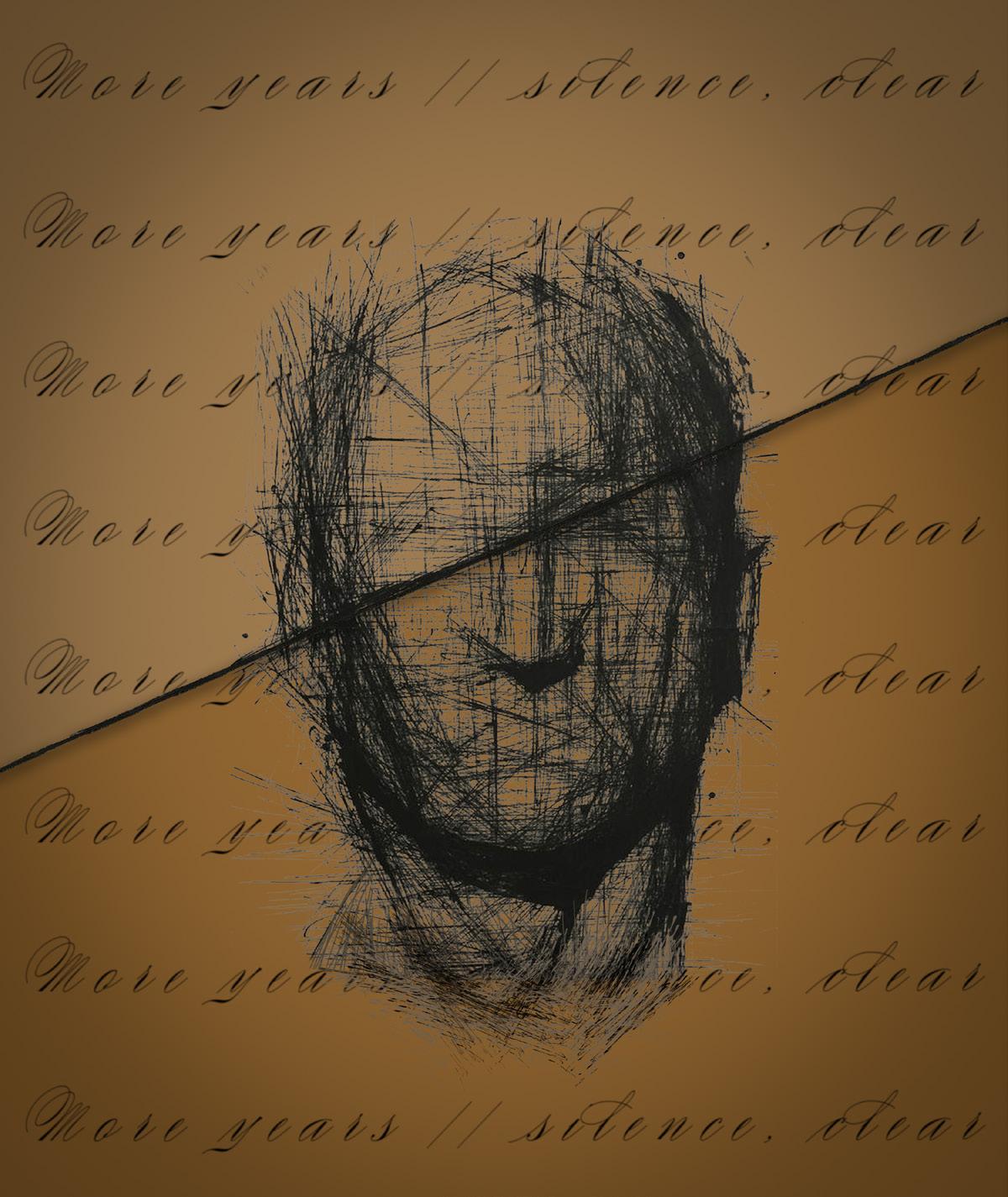
AZRIEL EZRA HU//STAFF
THE ANTLERETTE // FALL 2022
what are you supposed to say when their faceless visages are Blurred with grief turned away from the place of the person whom they all knew and whom you knew too but whom you did not too you sit through the words they say and watch the Thin Willow Leaves perhaps, you think, there is a spirit of the creek and that you may Run away together and in this way you Miss the whole occasion -
to live in the way of Small Things the pinch of the pants they made you wear the Hatred of having to wear a white pin the dreariness of the day when all that you want to do is to do
Well perhaps nothingbut what is comfort is it not that which you are unable to Give?
they cry and you may only feel Uncomfortable awkward, unable to to touch, to speak words only to give space and then space is for You distance, sire
you have lost, and yet you have Not Lost they have lost and you cannot understand it there is only No. 1: Acceptance there are no stages for you you are not capable of Comprehension if you cannot Feel you are nothing so monstrous the day is sepia-Toned, Underwater stained like with the warmth of Alcohol stains -
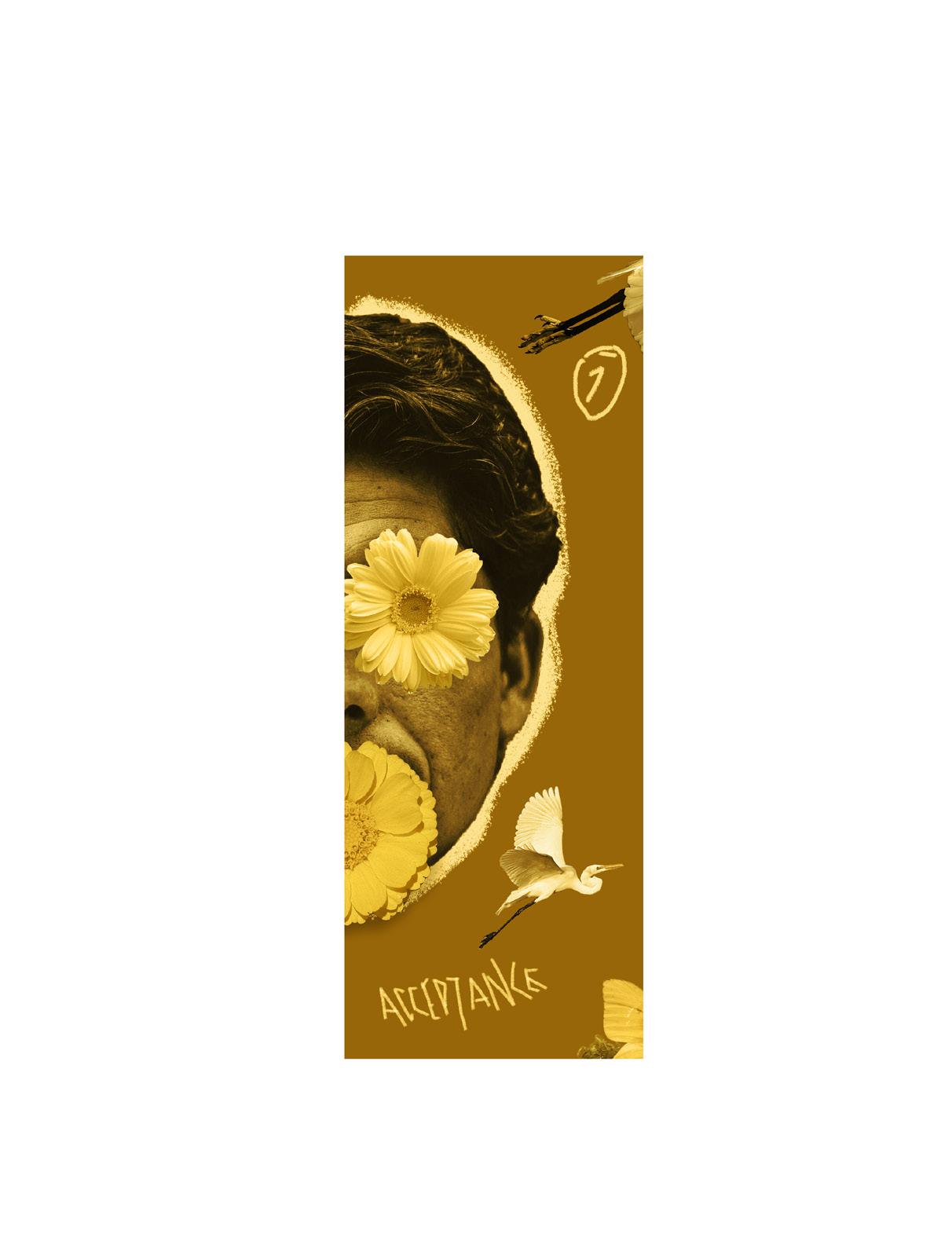

you are Not Scared of them finding out for what if they do?
there is not anything they can do for the space around your heart was carved out a long while Ago and left beside the stone where the Egrets are the flowers are bright yellow in the grass perhaps this is a different way of grieving, you think only, years later nothing has happened and you do not think of it for it Never mattered
To find beauty in something monstrous
An absence of desire does not mean an absence of fondness
To become detested - it was not hard, only a little trying
If they cannot see me then I am not here I have not become something that I was not already
LOSS < 4
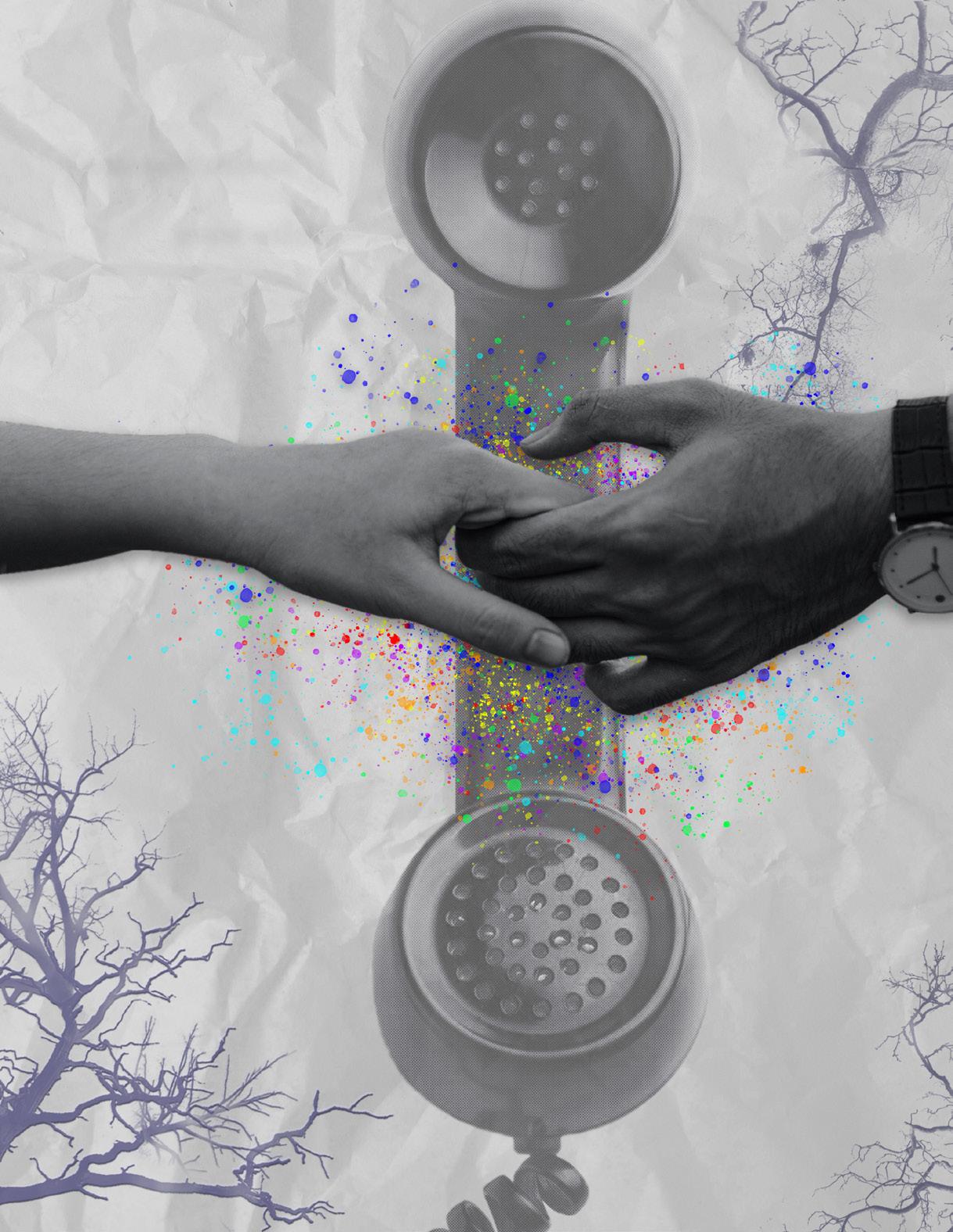











THE ANTLERETTE // FALL 2022
WHAT IS GRIEF, IF NOT LOVE PERSEVERING?
AVANI KUMAR // STAFF
Some loss in this world is unfathomable.
We learn love from the moment we’re born, an unfathomable amount of love is showered on us from our parents, and carries on throughout our lives. But the one thing about love that we can never be taught until it’s too late is how to love someone who is gone. Loss is a phenomenon we all grapple with during our lives, yet we never openly talk about it. Experiencing a traumatic loss results in serious change in brain function, especially in younger brains that are yet to finish developing, but it’s rarely ever displayed in our day to day lives. There is no “how-to” on losing your parents, but the comfort of knowing that someone else could also understand this unimaginable pain is one that can’t be replicated.
One evening I was a 16 year old girl, leaving rehearsal and getting picked up by my cousin until my mom came home. Six hours later, I was thrown into becoming an entirely different person.
I grabbed the phone with an innocence that I would never get back, as I listened to the ICU doctor tell me that we could lose my father at any moment, and we need to say bye. And when I hung up, the reality of the situation loomed over me. Nothing entered my sphere, nothing besides the ticking of the clock and an image of my father saying “I Love You” the last time we spoke. And as we got to the hospital, if it was possible for my heart to stop, it would have as I stared at my father, the person I love most in this world, comatose in a bed, with equipment trying to keep him alive. As I held his hand, stroked his hair, and spoke to him while my mother stood next to me, it was as clear as day that I would never be the person I was only 24 hours ago.
And when all was said and done, and we got that last phone call, a piece of me died with him.
But no matter how much apologizing and deflection I did over the next week, the day of the funeral was a traumatic reality check of the situation I was trying so hard to avoid. When we got there, I stood in front of the casket, and I put my hands on his chest. I touched his hands, his hair, and then I put my hands down, and I registered the fact that there was no rise and fall of his chest, no heartbeat. And that exact moment felt like the end of
my life. But even in the heartbreak that I felt, I had the bittersweet chance to recap the beautiful relationship we shared through my eulogy. Being a 16 year old girl, performing my father’s last rites is something that will never leave me.
In the months following, I truly felt like I was glued into one spot of my life, while the world continued on. I woke up and attended school, but nothing entered my brain. I ate food but I didn’t taste anything. I laughed but there was no real joy behind it. A part of my life ended that day, but the world had to keep going, and I was simply expected to revert back to normal. I woke up with this dark cloud of grief everyday, but for the sake of other people, I had to silently carry it with me.
To this day, I cannot fully wrap my head around the idea that my father is gone, and nothing can bring him back. Grieving is a forever process, it doesn’t shrink or go away, but we learn to grow around it, piece by piece. And that doesn’t define us. There is no set notion that makes us happy or sad, or any other of the many emotions that come with this type of experience. I get sad when I see daughters with their fathers, because I’ll never get that back. But in that same moment, I feel thankful for the fact that I’ve shared so much love that the loss of it feels substantial. Trauma plays out in so many different ways for so many people, even today, a phone call late at night sends me into a spiral. Every single day of my life, I feel as though my brain is reliving each moment, from the night before we got the call, until the days after the funeral. And as painful as it is, my brain’s cognition is still trying to process the emotional toll. I’m so lucky to have my mother, who I love and who loves me back in a way that the loss never feels completely unbearable. Grief is the most unusual, yet natural thing in the world, and it took me a while, but he deserves to rest peacefully, surrounded by the happy memories we shared with one another. Nearly a year later, I sit here and write this with the utmost confidence that my father is proud of me, and that he’s laughing it up with his family.
I don’t share my story for pity grabs or attention seeking, but to remind the people around us that everyone has a story. I will never be able to thank the people around me enough for the kindness they exhibited, because it’s priceless, and it’s the reason I can write this today. You are never, ever alone.
EDITORIAL IMAGE // ANNELI SPIELER LOSS < 6
HOW DOES THE BRAIN COPE WITH LOSS?
RYAN O’SULLIVAN // CONTENT EDITOR
At one point or another in our life, we will be faced with loss. This could be the loss of a loved one, a friend, or a family pet. What comes shortly after this loss is the experience of grief or sorrow. As a person, it is natural to feel these emotions especially during such a moment in our life that carries as much weight as a death. On the scientific level, it may be important to know how our brain processes this loss and what release in our body may cause such feelings of depression or hopelessness.
When we start the grieving process, a group of neurochemicals and hormones begin to do a dance in and around our head. We begin to feel flooded with vibrant and powerful emotions. These chemicals find a way to disrupt certain hormones that control our appetite, how we sleep, and they may even cause us to feel fatigued or lazy. Overall, the process of when we first start to mourn causes our brains to want to completely shut down. Additionally, loss triggers an instinct in our body that comes back to our early days of surviving as humans and it even causes our fight or flight reflexes to activate. In this case to fight would be to face the grief head on and allow yourself to mourn whereas the
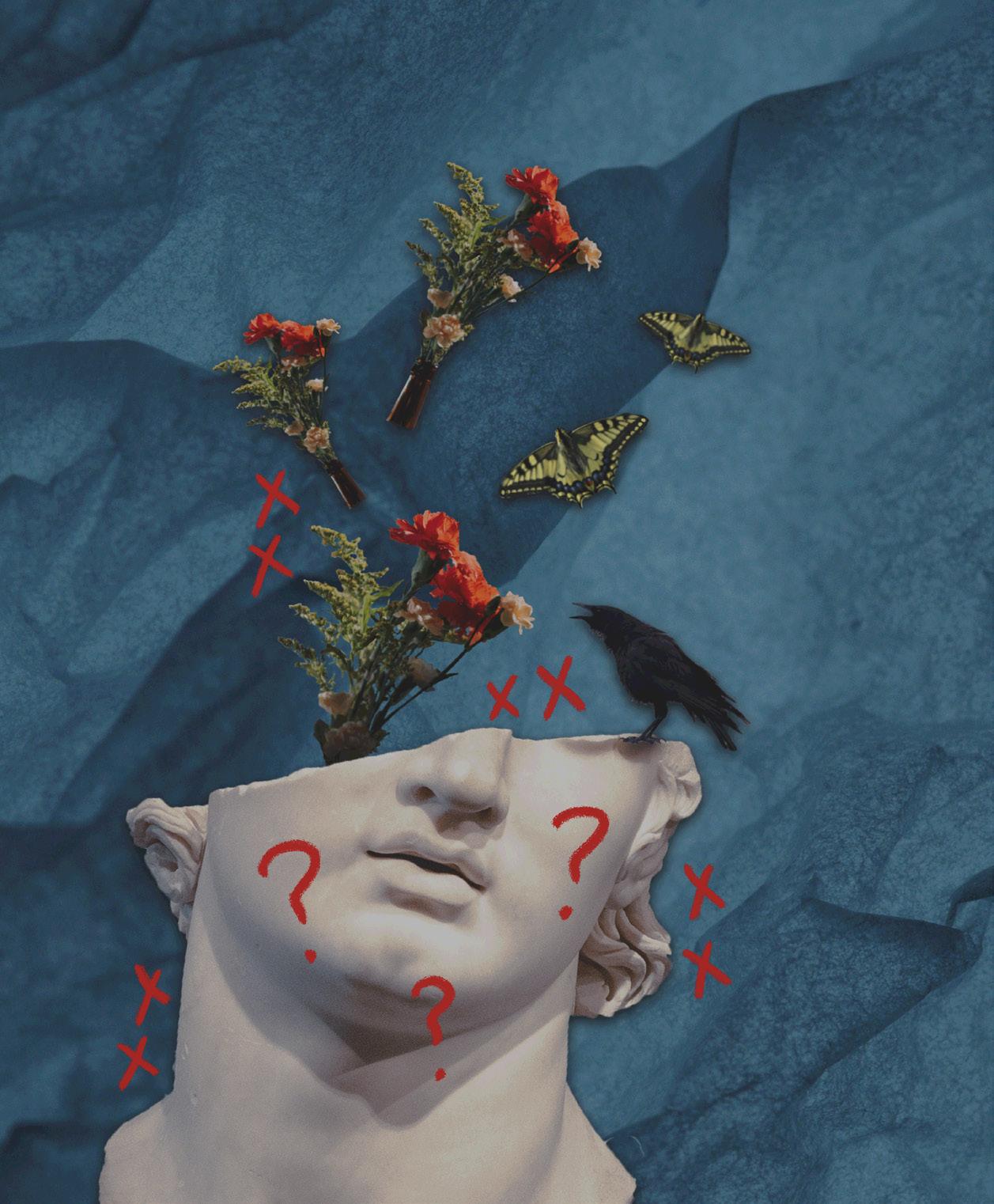


flight would be to ignore these feelings of grief and try to disregard the onset of emotions. After the early stages of grief are over, we are left with stress in our brain that may reside for a long time – a stress that completely alters the way our brain has functioned anytime before the loss. However there are ways that may help us process this stress a little bit better. Writing our feelings down in a journal, meditating, seeking help, and finding ways to be creative all exercise your brain in ways that may make it easier in times where you may need closure. Prolonged grief disorder is rare in people who have recently lost someone important to them, but it can happen, so it is important to keep these exercises in mind.
If you feel that the grief you are encountering is too much, never be too afraid to ask for help. We are all certain to experience loss at one point in our life and it will forever change who we are and how our perspectives on life are altered. This does not have to be a negative change, it is okay to miss someone, but once it is all said and done, loss helps us mature and gain understanding of life.
”
“ THE ANTLERETTE // FALL 2022
We are all certain to experience loss at one point in our life and it will forever change who we are and how our perspectives on life are altered.



EDITORIAL IMAGE // SAHVILA VANG LOSS < 8
I’M NO MASOCHIST, MOTHER
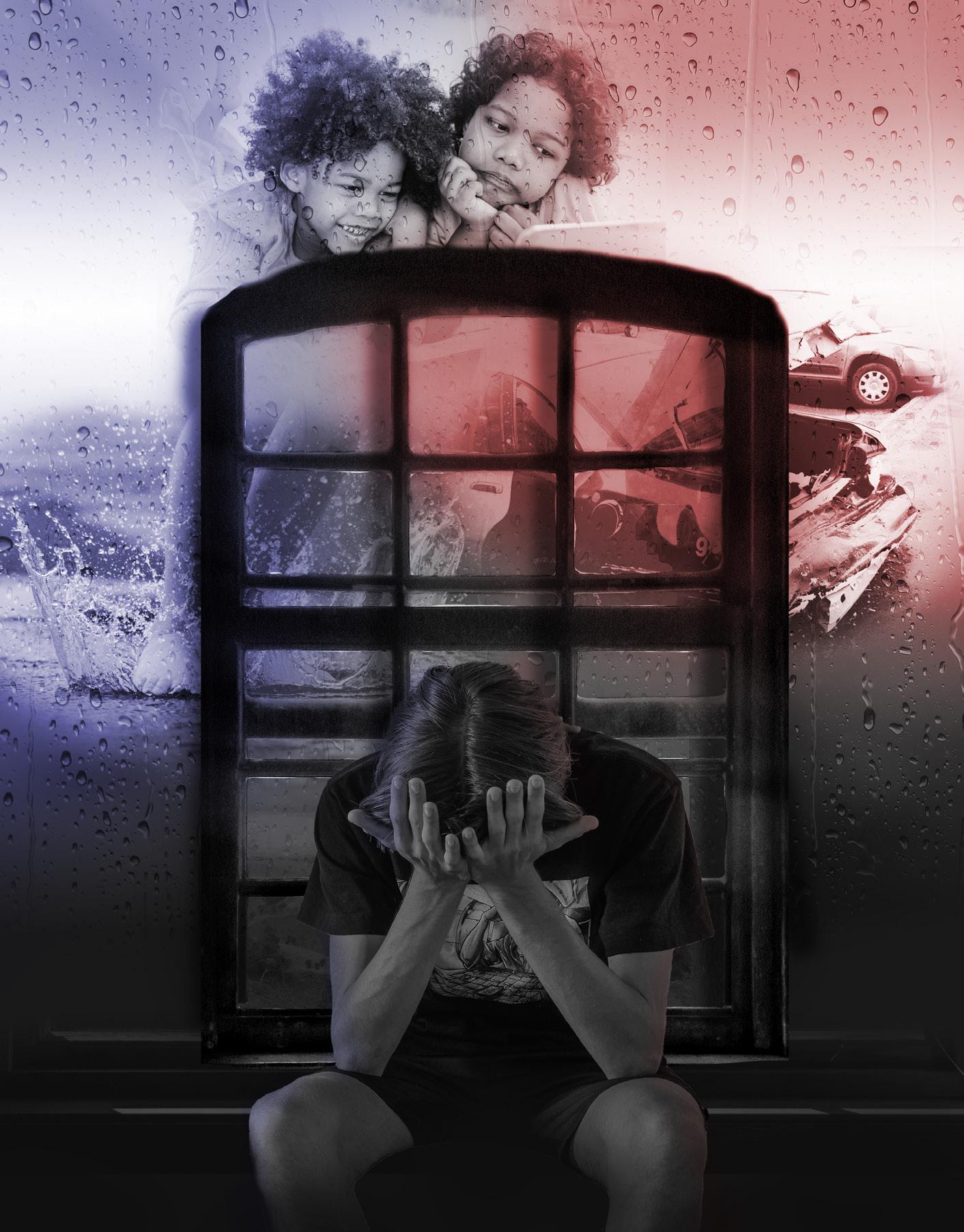
I couldn’t imagine stepping out into the cold now, not without him, not after the rain had slicked the roads and taken him from me.
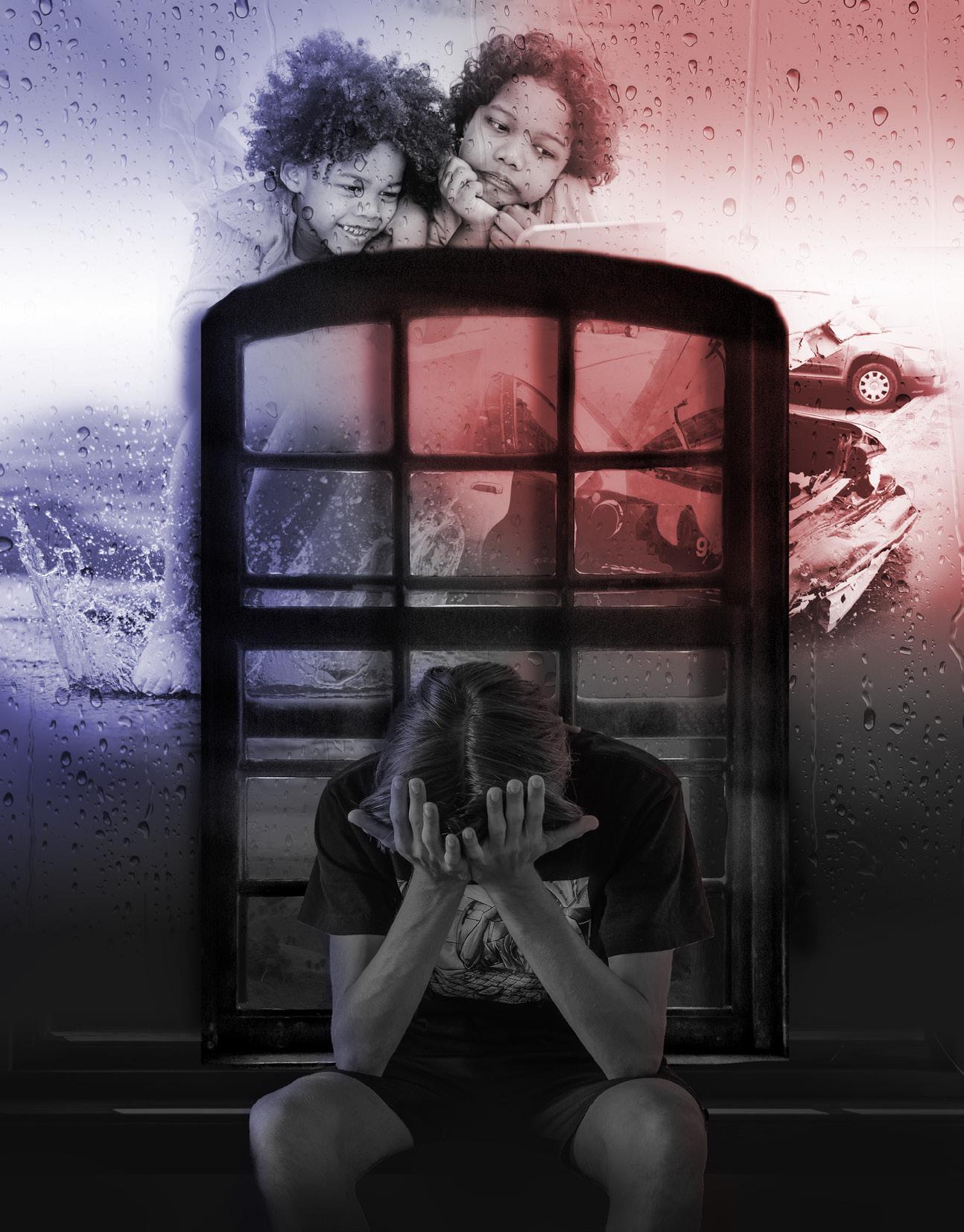
” EDITORIAL IMAGE // MONIQUE TRAN
“ THE ANTLERETTE // FALL 2022
SPRUCE RANTS-BIGAM // STAFF
It was raining again. It felt like it had rained everyday since I got the call from his parents. The words had been playing on repeat in my mind for the last week - I’m so sorry, he’s goneand every time I closed my eyes I could see my mother’s face dim and my sister’s eyes swell with tears as I forced myself to relay the news. I knew the funeral was tomorrow, and my mother would soon come into my room to try and coerce me into attending, but she would be unsuccessful.
I’ve never understood funerals or remembrances of life. To me, the idea of being forced to sit through a long ceremony telling me that I’ll never see someone I love again seems a cruel and unusual punishment. I’ve always felt it best to leave myself with a memory of us together; happy and believing we were on top of the world. It’s not like I wouldn’t remember them in my own way - my penchant for photographing the majority of my life ensured that there would be a long slideshow of memories to look back on when I was ready. But for now, I would simply sit by my window as the rain cascaded down the glass and recall the times we had danced in the rain - indifferent to the feeling of the cold and the way our wet clothes stuck to our freezing bodies. Eventually, we would be dragged inside by our mothers, scolded for our lack of jackets and senselessness, but we never cared. I couldn’t imagine stepping out into the cold now, not without him, not after the rain had slicked the roads and taken him from me. But still, I could sit, and could dream of a happier time. My door creaked open, and felt my shoulders tense. I knew it was time for an uncomfortable discussion, but I also knew I would not be swayed.
“Hey, honey,” my mother began quietly as she slowly padded over to my bed, gently moving the suit for tomorrow out of the way so she could sit, “Are you ready for tomorrow?”
I sighed, still gazing out the window, “I told you, I’m no masochist, Mother. I’m not going.”

It was quiet, for a moment as she debated arguing with me in her head. This was not the first time we had the conversation, but it had so far been the quietest. All throughout the week we’d had screaming matches, sharp words flying between us that we both knew could not be taken back. She believed I should go, it was only right to see him one last time, and to support his family. I didn’t care. I didn’t want to ruin our last memories of us: snuggling under the covers as we shrieked our way through a horror movie, accidently dropping my hot chocolate in his lap, running through the halls after he’d dumped ice water on me while I was in the shower. The thought of staring at my best friend’s cold, waxy face in the coffin hurt more than any guilt trip she could throw at me. I knew that the moment I laid eyes on him, my memory would be forever tainted, and I just couldn’t have that. Finally, I heard her rise, and she placed her hand on my shoulder.
“Okay hun,” she acquiesced, “I’ll call his parents for you, tell them not to expect you after all.”
“Please tell them I won’t go to the remembrance of life either,” I muttered despondently, “I don’t want to be forced to grieve that way.”
Her grip tightened, loosened, then tightened again - as if she couldn’t decide how she should respond. There was another quiet sigh, before she patted my shoulder and slipped out of my room, leaving the door slightly ajar. I felt my body relax again, and let the weight of my head slump against the window pane. I would grieve in my own time, on my own terms. But for now, I would sit and stare at the rivulets of rain slip down the glass, and recall the simpler times when rain meant a dance and laugh, not a slip of tires and a wreck.
LOSS < 10
LOSING MY PAST TO ACHIEVE MY FUTURE.
BENJAMIN CARRILLO // EDITOR IN CHIEF
I,Benjamin Carrillo, am a man who can’t breathe at the thought of hurting someone’s feelings. I shrivel up at the thought of someone disliking me. I would rather sleep on a bed of nails than allow someone who I don’t know to understand how I’m truly feeling. But I have dreams. I have dreams that can’t be hindered any longer because of any issues in my past that have caused me to have anxious woes in my present. With the first quarter of my senior year already wrapping up recently, it’s time to confront my past head on, and with a heavy heart start to look toward the future.

For me, there was no point where it all went wrong that I could blame my feelings on. It was just anxiousness that appeared one day, a pit in my stomach started eating at me. But it’s not as if that makes my experiences any less valid – and the important part is I start to head towards a world where I can lose that pit of anxiousness, and not let it consume me as it normally does. I’m subjected to sleepless nights – ridden by anxious thoughts about the future. I have found myself on the losing end of a battle with my mental health – a battle that necessitated overcoming for the sake of my future. There’s no point dwelling in the past when the present and future are bright.
Of course, this was easier said than done. It’s irrefutable that colleges are more competitive to get into now more than ever, the future is something taken so seriously by nearly everyone. My peers and I are constantly put at odds with one another, for the prospect of future goals that we deem important enough to be worth our time. Just to get in this magazine, I needed to stand out more than 20 of my peers. The chains of my past need to be cut to get more efficient at this. Goodbye to the sleepless nights, the consuming wave of anxiety, and the depressed thoughts.

“There’s no point dwelling present and future
EDITORIAL IMAGE // JULIANNA NEPOMUCENO THE ANTLERETTE // FALL 2022 e5e5d9
dwelling in the past when the future are bright ”
It’s time to stop losing a battle, it’s time to finally cut the ties. There’s always going to be the mental block, the consuming void in my stomach that causes me to have a shortness of breath; but it’s at a point in my life where I cannot let that consumption continue. There’s a time limit – there’s a limit until the future finally reaches me, and it becomes my present. To me this idea is both horrifying and beautiful at the same time; it’s what keeps life exciting. But I need to win the battles, not succumb to the anxious void that’s forming. I can’t lose myself; the only thing I can afford to lose is the past memories that keep me from wanting to go further.

But how can I do this? Anxiety as a concept isn’t something that could be cured on a whim; it’s a complex issue-with layers and possible remedies, since a cure is nonexistent. What makes anxiety incredibly fascinating is there are multiple ways to handle it healthily. There could be someone who grounds themself to reality, having consistent reality checks on a daily basis; there are people out there who seek meditation to help themself deal with such an anxiousness. What works best for me, however, is recognition and understanding. I strive to understand and wrap my head around concepts academically. That mentality remains the same for my mental health as well. I want to understand my anxiety so I can lose it, leave it in the dust. While it will always be something that I live with, I want it to be an afterthought, something that I can recognize and deal with accordingly.
EDITORIAL IMAGE // CELIA JONES
In a time with so much loss and grief, it’s important to look at loss as a good thing sometimes, and lose the mentality that could be toxic and hinder you from moving forward.

EDITORIAL IMAGE // VANESSA INIGUEZ LOSS < 12 e5e5d9
THE LOSS OF TIME
For the past several years I have felt that time is moving faster and that I am losing time. It feels like it was just yesterday when I was walking into high school for the first time but in actuality, it has been 3 years. I vividly remember starting this school year off just like it was last week but it was almost two months ago. Weeks and months have blurred together and have progressed faster than it ever has before. I believe the realization that soon I will graduate and become an adult is causing the feeling of time progressing faster than usual.
As a child I always wished for time to move faster so I could be “cool” like the older kids. Now that I am older, I wish the opposite, I wish for time to slow down. Soon, I will be 18 years old, a legal adult. I will be going out to college, getting a job, and living on my own. I wish that time would slow down so I could spend more time with my family. I wish time would slow down so that I could spend more time with my peers at school for I will not see a majority of them for the rest of my life. People that I have been going to school with for my entire life will become c omplete strangers in the next few years. I thought to myself, “It’s my senior year; I will have lots of time to
spend with my friends,” but it’s quite the opposite. Everyone is so busy with either school or extracurriculars, and it gets hard to spend time with each other. As weeks go by I realize that these may be my final weeks hanging out and spending time with them before we all go our separate ways.
Although I feel that my time with everything I know is deteriorating, I still try to make do and block out any thoughts about time moving forward. Time moving forward is a natural part of life and everyone feels like they are losing time. Everybody grows old, nobody stays a child forever, even if we wished we could. Sooner or later the actions we take now will just become distant memories in the future. It is best to make the best of life right now as we are still young. Slow down time by doing things that make you happy and that you can remember in the future. Hangout with your friends, go to school events, and make the most out of your time.
Feeling as if you are losing time is a natural occurrence in everybody’s lives and it’s easy to worry about it, but just remember that everything will end up the way it does no matter what happens.





Everybody grows old, nobody stays a child forever, even we wished we could.
THE ANTLERETTE // FALL 2022
DAVID CANO // STAFF
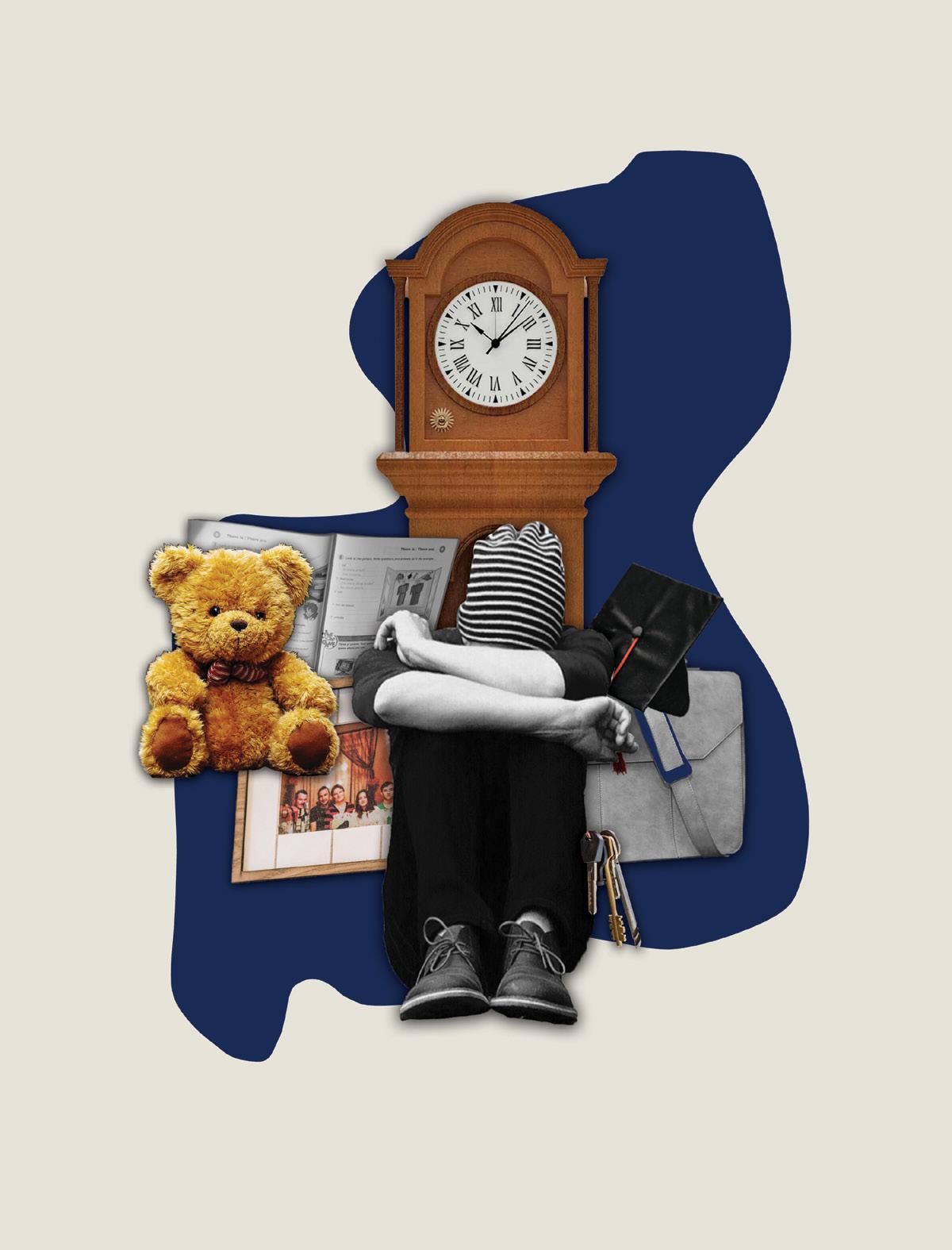


nobody even if EDITORIAL IMAGE // DESIRAE WHITE LOSS < 14
IZAIAH RETANA // STAFF

LOSS AND ITS PRESENCE IN CREATIVE OUTPUT :THE STORY OF WISH YOU WERE HERE
Loss is something that everyone experiences at some point in their lives to varying degrees. When we lose something or someone, that loss takes its toll on all of us in different ways, but what happens when you mix the loss of a dear friend and a loss of innocence with one of the most popular bands of all time? This is the story of Pink Floyd’s Wish You Were Here.
Following the monstrous success of their album The Dark Side of the Moon, released in 1973, the bands’ emotional state had grown detached and exhausted, with the demand for the band’s next project getting higher and higher. Years earlier in 1968, the co-founder of the group, Syd Barrett, was kicked out of the group after their first two albums due to his deteriorating mental state derived from excessive use of psychedelic substances and potential schizophrenia. The still fresh loss of the group’s good friend would fuel the content of their ninth studio album, Wish You Were Here.
The album itself seems to present loss in a couple ways, the obvious one being the loss of their bandmate, which is a theme present in the majority of the album’s tracks, Shine On You Crazy Diamond (Pts. 1-5), Wish You


Were Here, and Shine On You Crazy Diamond (Pts. 6-9). The other aspect of loss explored within the album is a loss of innocence when it came to the music industry. With the group’s popularity growing expansively due to their previous album, higher ups and music executives wanted a piece of the group, yet they could not hide their true nature of only being interested in the money. This side of loss is present in the rest of the album’s tracks, Welcome to the Machine, and Have A Cigar.
The opening and closing tracks of the album, the lengthy multi-sectioned Shine On You Crazy Diamond, and the title track, directly explore the loss and grief for Barrett within the lyrics, acting as laments for the band’s fallen friend. Welcome to the Machine and Have a Cigar are both sung from the point of view of an industry higher up manipulating what could be a growing artist, reflective of the band’s status at the time.
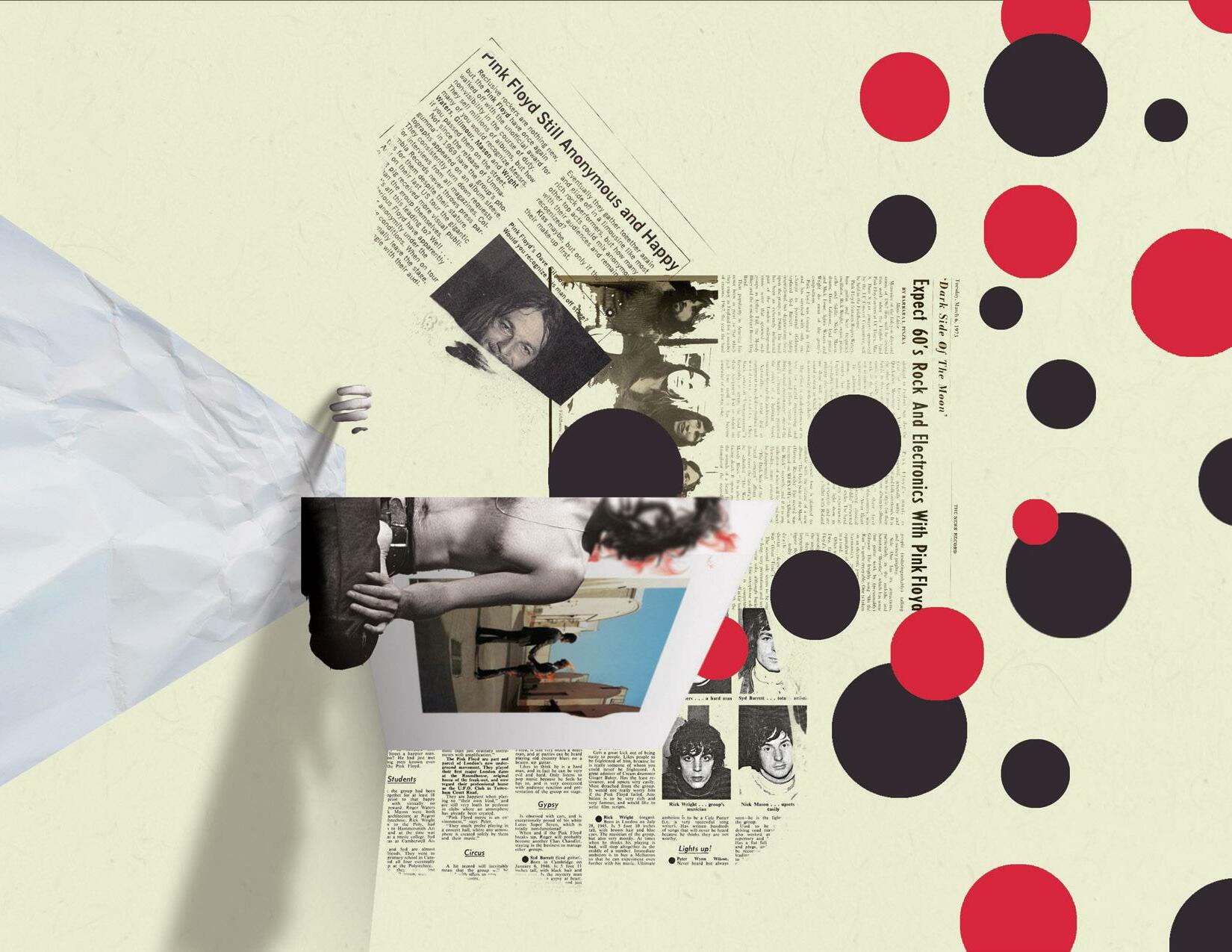
In conclusion, Wish You Were Here by Pink Floyd is an album deeply influenced by shared losses among the group. Losses that would result in one of their more personal projects, and one of the most critically acclaimed rock albums of all time.
critically acclaimed rock albums
THE ANTLERETTE // FALL 2022 most





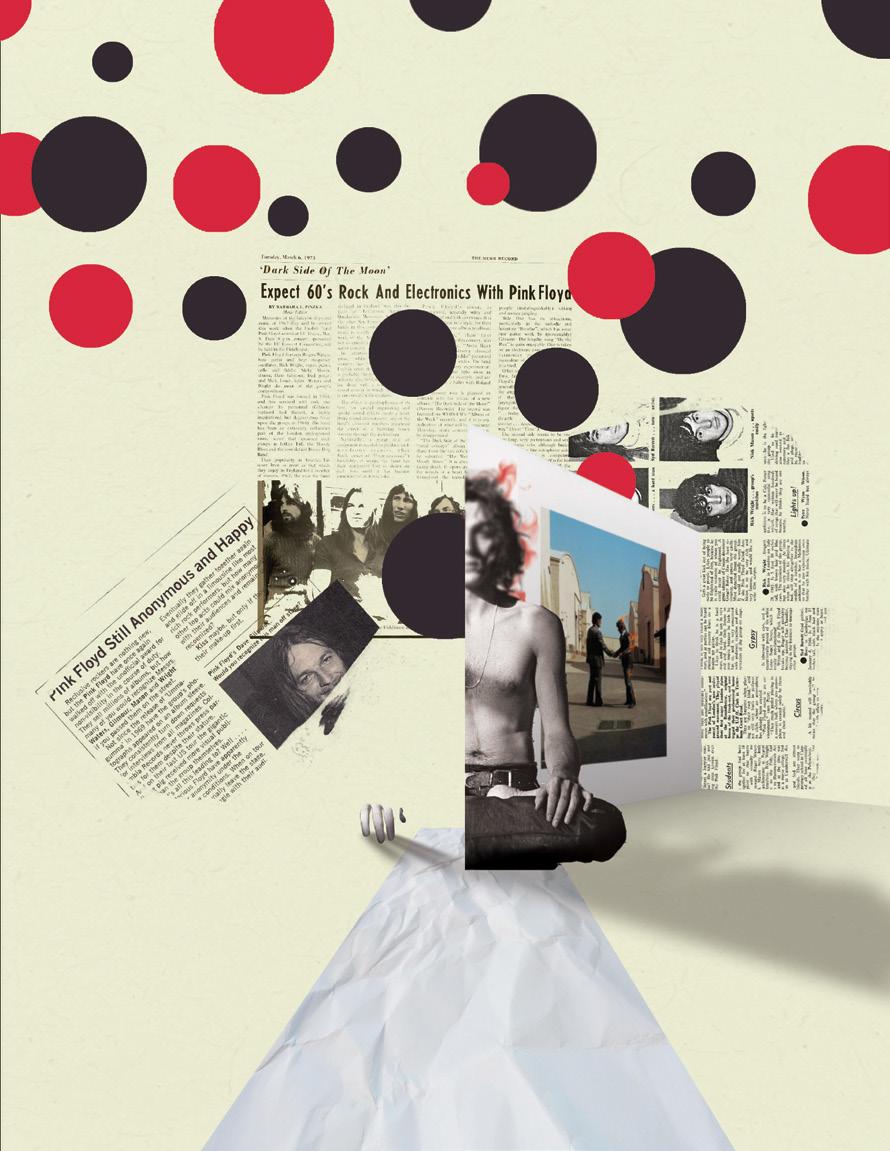

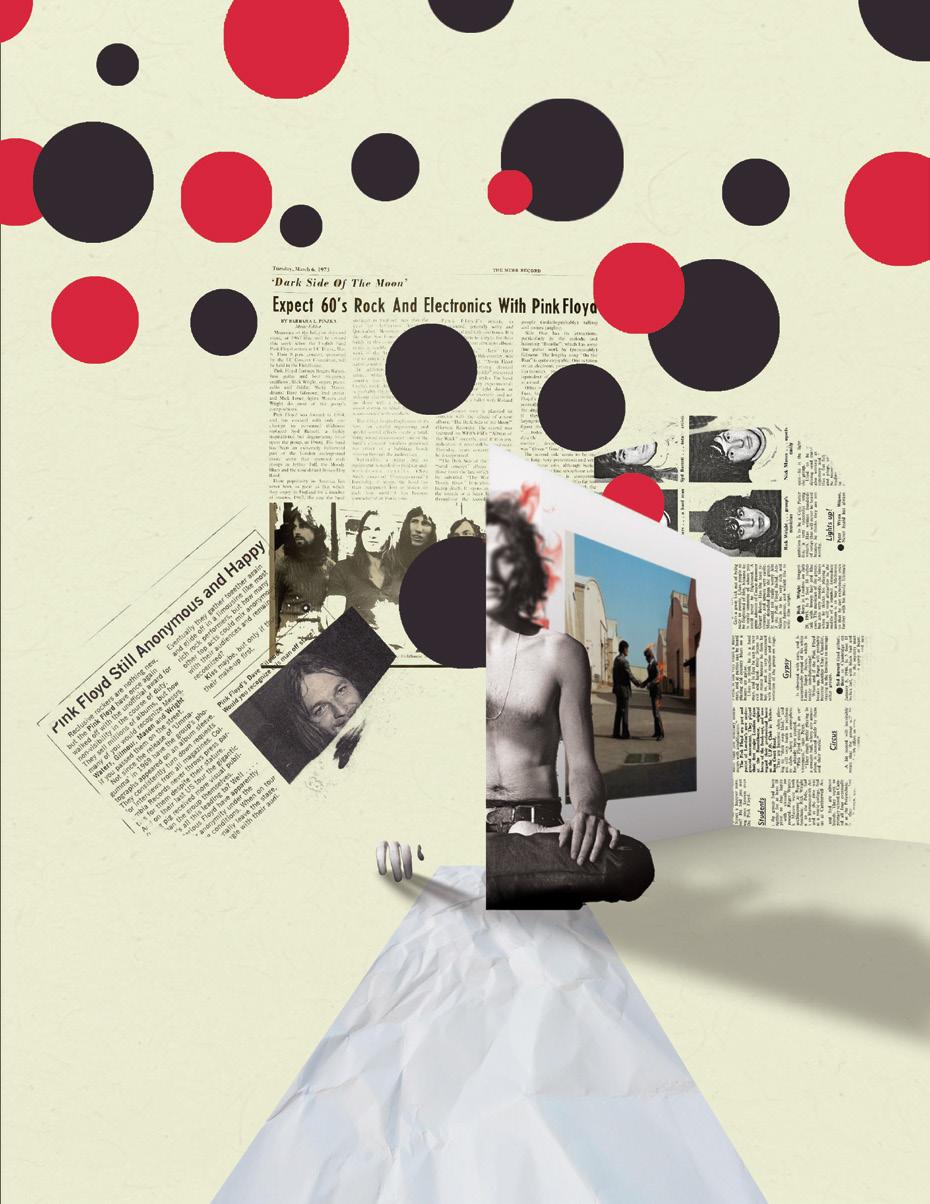

EDITORIAL IMAGE // NEIL FILMORE TESTA
AMERICA IS LOSING ITS DEMOCRACY

 ADRIAN BAYARDO // STAFF
ADRIAN BAYARDO // STAFF
What happens when the American people begin to fear that their ballot won’t be counted? Or worse, that an election has been stolen? America has prided itself on being a functioning democracy ever since it declared itself an independent nation in 1776. Specifically, America was designed to be a representative democracy, meaning the people are represented in Congress through their elected officials. In recent years, there has been an astonishing increase in mistrust in both election results and elected officials. Online conspiracies have greatly contributed to this, and have threatened the integrity of American elections altogether. The consequences of these election conspiracies may inhibit our ability to have a peaceful election in the foreseeable future.
2020 was an unprecedented year in many ways, but especially when it came to voting. President Trump had been a polarizing candidate from day one, and on his re-election campaign he claimed numerous times that his victory was certain, and that the only feasible possibility of his defeat would be the result of a “stolen election”. So, on November 7th 2020 when it was announced that Senator Joe Biden was the projected winner, thousands took to the streets to protest a “stolen election”. With this, America was officially plunged into a political divide unlike any other. On January 6th, 2021, the world watched in horror as a terrifying assault on the nation’s capital unfolded. Tens of thousands of furious Trump supporters gathered to storm the Capitol, waving Trump flags and chanting obscenities in the halls of the capitol. Their goal, to halt Congress’s certification of the votes from the 2020 election and keep President Donald Trump in office. Millions of Americans watched the riots live, and began to question the integrity of our government as a whole. After all, what is the point of a free and fair election if one party can claim their victory with no evidence to support it?
With the midterm elections upcoming this November, several things are at stake, from reproductive rights to control of the Senate and House of Representatives. This election will determine the path America will follow for the next two years and it is crucial that every eligible voter makes their voice heard. Unfortunately, due to the controversies and conspiracies seen in our last elections, there will be an element of fear and uncertainty in voters this year. This phenomenon is driving some people away from the ballot box, and it leaves room for more extreme candidates to be elected and extreme measures to be passed without opposition. The consequences of this will be dire, and the continuation of this trend could threaten America’s status as a democracy altogether. The solution? The American people need to have their faith restored in our electoral system, only then will it be possible to try to regain the democratic America we have lost.
TRUMP HAS BEEN A POLARISING CANDIDATE FROM DAY ONE..."
THE ANTLERETTE // FALL 2022
"PRESIDENT
LOSING DEMOCRACY


EDITORIAL IMAGE // TRINA PHAM LOSS < 18
“Cynicism is a disease , a blackhole that sucks all the joy out of the world and leaves behind nothing but suffering
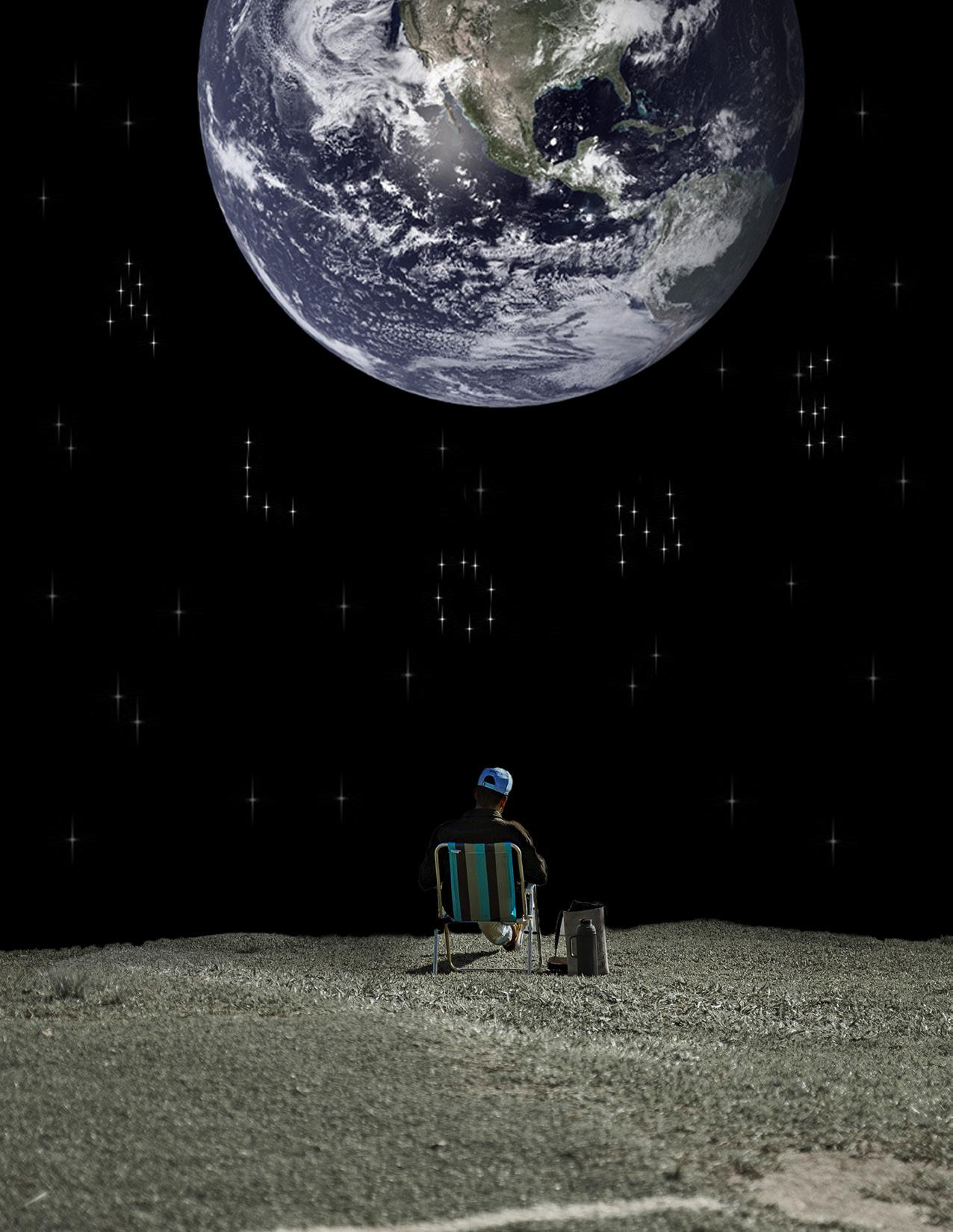

CYNICISM: SEEING THE WORLD THROUGH CRACKED GLASSES
AILIDH RUTHVEN // STAFF
. ” THE ANTLERETTE // FALL 2022
Cynicism. Most of us know the word, even the general meaning of it. But we don’t truly understand the darkness behind it. We human beings spend so much time seeking to understand the world, so we create categories and definitions for everything under the sun. Psychopathy, narcissism, nihilism, etc. We make so many names to describe the nuances of the mind that their meanings all seem to blend together.
People tend to think of cynicism as a quality, simply a way to describe a person’s mindset. But cynicism isn’t a trait; it’s an experience. Cynics earn their worldview through painful experiences. Life is a fickle thing, building us up and beating us down again and again and again. A cynic experiences pain, and decides that if they don’t want to be hurt anymore they must first learn to expect the worst. And so they do. Life has taught them that no one is trustworthy. Everyone is an enemy. In that sense, cynicism isn’t a trait, but a bad habit born from the ups and downs of life.
The definition of a cynic is a person who believes that people are motivated purely by self-interest rather than acting for honorable or unselfish reasons. While this definition is not wrong, it simply describes a cynic’s beliefs. Beliefs are not an innate trait, they are something we develop. A cynic was not always so cynical; in fact some of the most stubborn cynics once were the most optimistic people. A cynic is simply someone who has lost their faith. Faith in the human character, in kindness and generosity and selflessness.
We live in a time where common decency seems to be ever shorter in supply, which means it is far too easy to develop a cynical worldview. But cynicism isn’t healthy. It’s a rotten and distorted way of viewing the world that chooses only to see the misery and imperfection of the world while refusing to acknowledge the good. Cynicism is the opposite of seeing the world through rose tinted glasses. It’s seeing the world through cracked lenses, distorting everything you see to fit the lenses you yourself have put on. After a while, you forget that the world ever looked any differently.


Cynicism is a disease, a blackhole that sucks all the joy out of the world and leaves behind nothing but suffering. To become a cynic is to try and kill a part of who we are. Maybe we can convince others that we’re past the point of no return, that we have lost our faith in the human character completely. But, no matter how hard we try, we can’t kill hope.
After all, glasses are simply things we wear. We can choose to take them off at any time. But for a cynic, it will take hard work and dedication to reject the cynicism they’ve developed. The key to happiness is finding a balance of optimism and cynicism. Be skeptical, but open.
EDITORIAL IMAGE // MAKENNA BERG
LOSS < 20
TDA GALLERY SENIORS

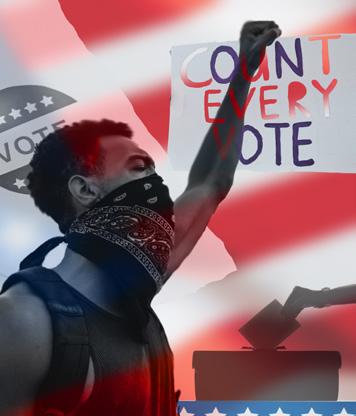





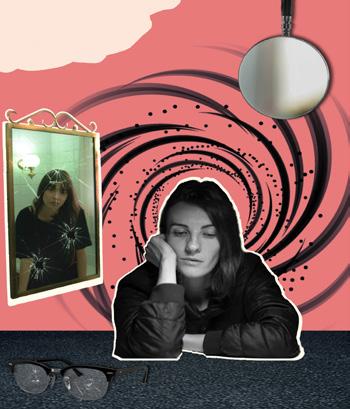
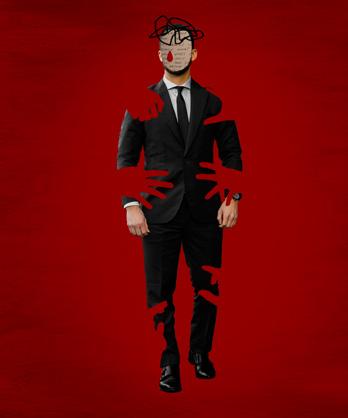
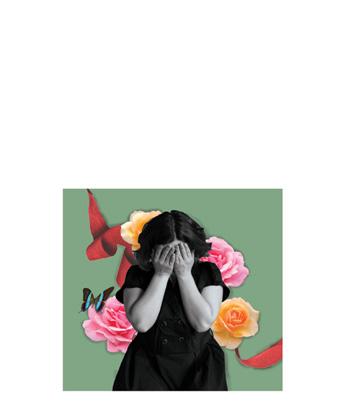
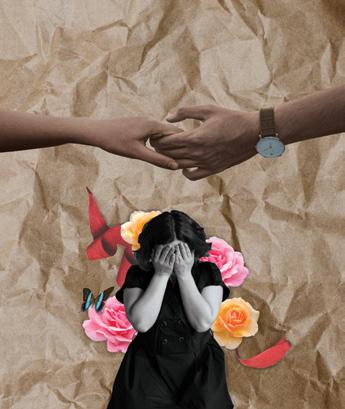
THE ANTLERETTE // FALL 2022
LOSS // SOPHIA ROSAS-SAENZ
LOSS // BROOKLYN DUONG
LOSS // LANCE CHOW
LOSS // HENRY PARTINGTON
LOSS // DINA DOAN
LOSS // EDUARDO VELASCO
LOSS // JUBILEE BURKE
LOSS // ELYSE PHILLIPS
LOSS // KAYLA ROSE-KILGORE
ART
























LOSS < 22
Field Trips Family Mentors
Computers
Digital Photo
Our Website
Luncheons
Movie Dance
Shirts
Creativity
Art Shows
DREAM CREATE ACHIEVE
TDA ACADEMY Awards
Digital Art





























 EDITORIAL ADVISOR // MICHELLE HAMILTON DESIGN ADVISOR // MARGARET SOULIERE
EDITOR-IN-CHIEF // BENJAMIN CARRILLO CONTENT EDITOR // RYAN O’SULLIVAN
EDITORIAL ADVISOR // MICHELLE HAMILTON DESIGN ADVISOR // MARGARET SOULIERE
EDITOR-IN-CHIEF // BENJAMIN CARRILLO CONTENT EDITOR // RYAN O’SULLIVAN































 ADRIAN BAYARDO // STAFF
ADRIAN BAYARDO // STAFF




































